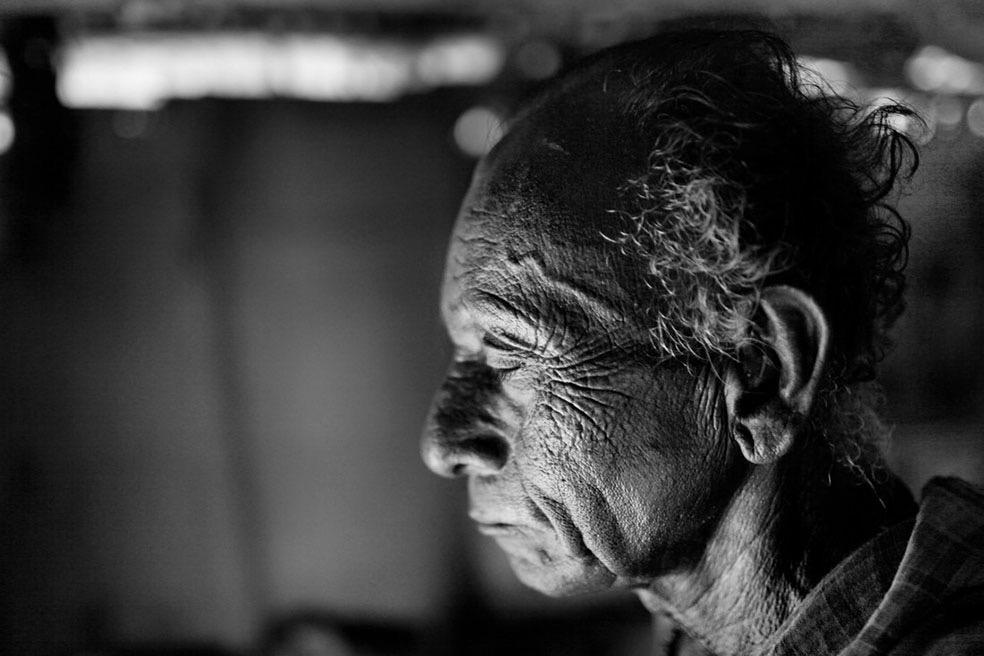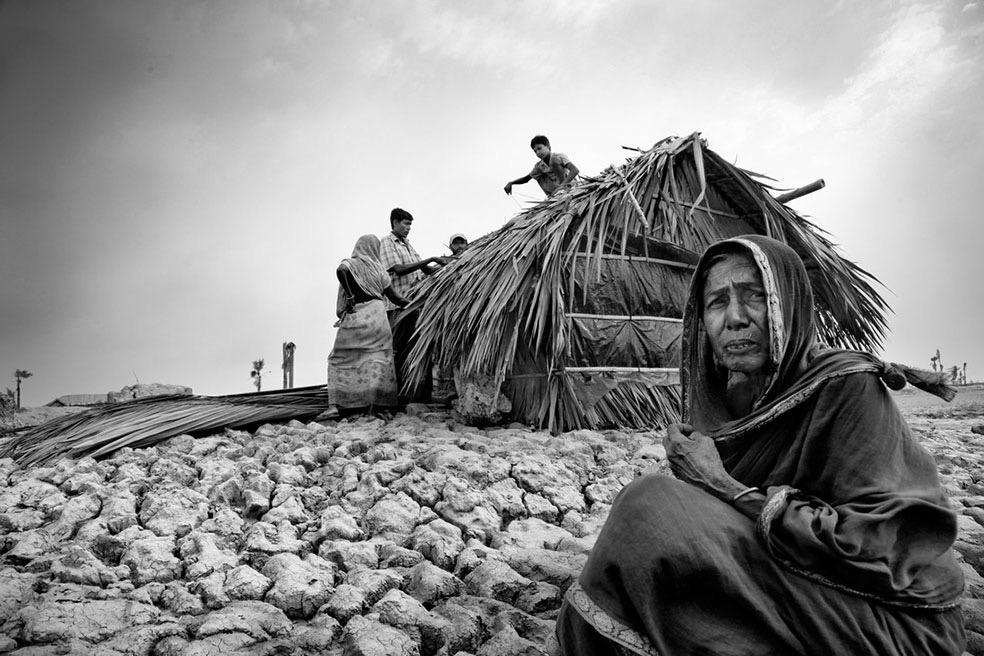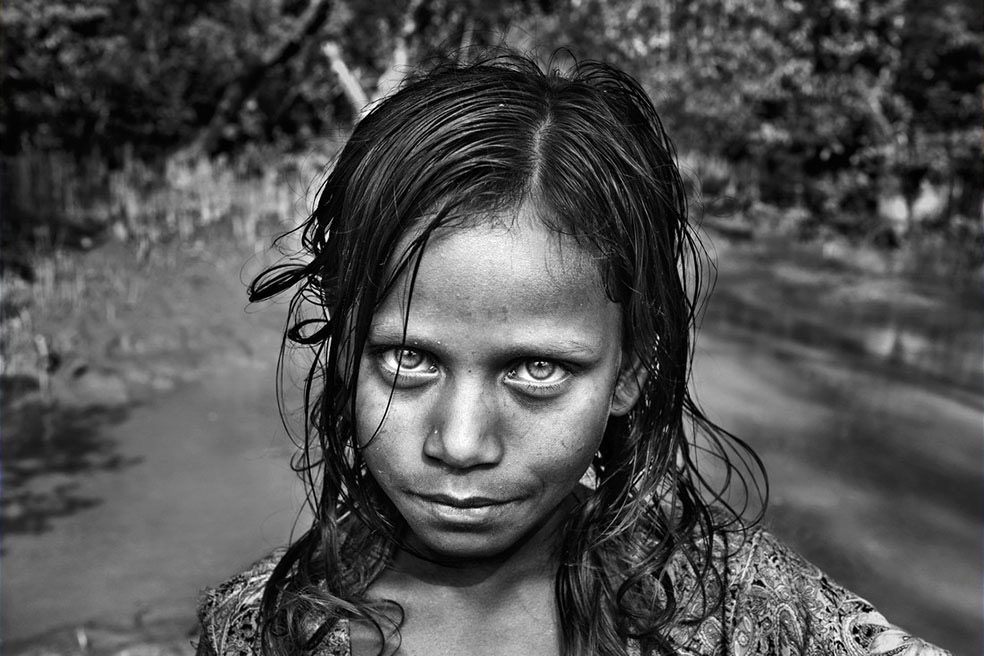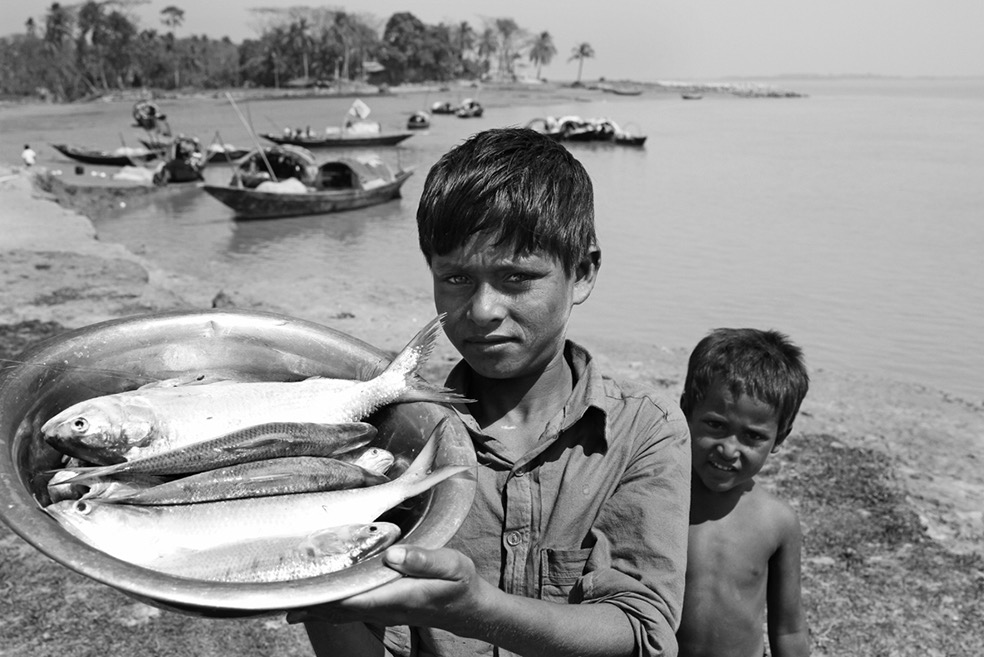Global warming seems to have more severe impact on certain countries than others because of the way it affects the world climate. An immediate effect of global warming is the increased natural disasters like storm surge and flood, while sea level rise is a slow, yet inevitable process. Bangladesh, the largest delta of the world is an obvious victim of global warming. An increase in natural disasters like cyclone and oceanic tidal waves are affecting the coastal area of Bangladesh. The coastal lowlands of this country are inhabited by millions of people who, ironically, are dependent on the sea for their livelihood. Thus, Bangladesh is one of the scapegoats of climate change, a direct function of global warming.
Low lying coastal areas of Bangladesh are speculated to be submerged due to sea level rise as the world temperature continues to go up. This situation is worsened by immediate natural calamities like cyclones and tidal floods. Two recent cyclones, Sidr (2007) and Aila (2009) totally devastated the coastal territory of Satkhira, Barguna, Patuakhali, Khulna, and Bagerhat. Gabura, a region adjacent to Sundarbans of Satkhira district, stands as the epitome of how dreadful the effects of climate change could be. Cyclone Aila hit Gabura on 27 May, 2009, and claimed 330 lives on its way while 8,208 or more remain missing till date. The storm wiped away natural resources and shelters, leaving 1 million people homeless. Health officials in Bangladesh confirmed a deadly outbreak of diarrhea on 29 May 2009, with more than 7,000 people being infected and four deaths. In Bangladesh, an estimated 20 million people were at risk of post-disaster diseases due to Aila. Damage totaled a shocking figure of 552.6 million USD.

As the rising sea levels and unusually high tidal waves encroach the lowlands of Bangladesh, the coastal areas face increased salinity. In dry season, when the flows of upstream water reduce drastically, the saline water goes up to 240 kilometers inside the country and reaches distant regions. Agricultural activities as well as cropping strength have been changed; now farmers are unable to grow various crops in a year. Food and work opportunities are getting reduced. An additional factor that helps continuous sustentation of salinity in main land is shrimp cultivation – an activity which involves trapping sea water in the agricultural lands for a long time.
The Sundarbans is the largest single block of tidal halophytic mangrove forest in the world. 60 percent of Sundarbans is shared in Bangladesh, covering major parts of Satkhira and Khulna districts while the rest of it lies in West Bengal of India. Sundarbans works as the shock absorber of natural disasters in the coastal regions of Bangladesh, partially protecting the communities from the surge of tidal waves and gust of cyclone. However, as agricultural lands continue to diminish, a lot of people are being forced deeper into the jungle for procuring livelihood by means like honey or firewood collection. This makes them victim of deadly Royal Bengal Tigers, which often break into the nearby localities, too. These unfortunate fortune seekers are also often kidnapped by pirates roaming inside Sundarbans.
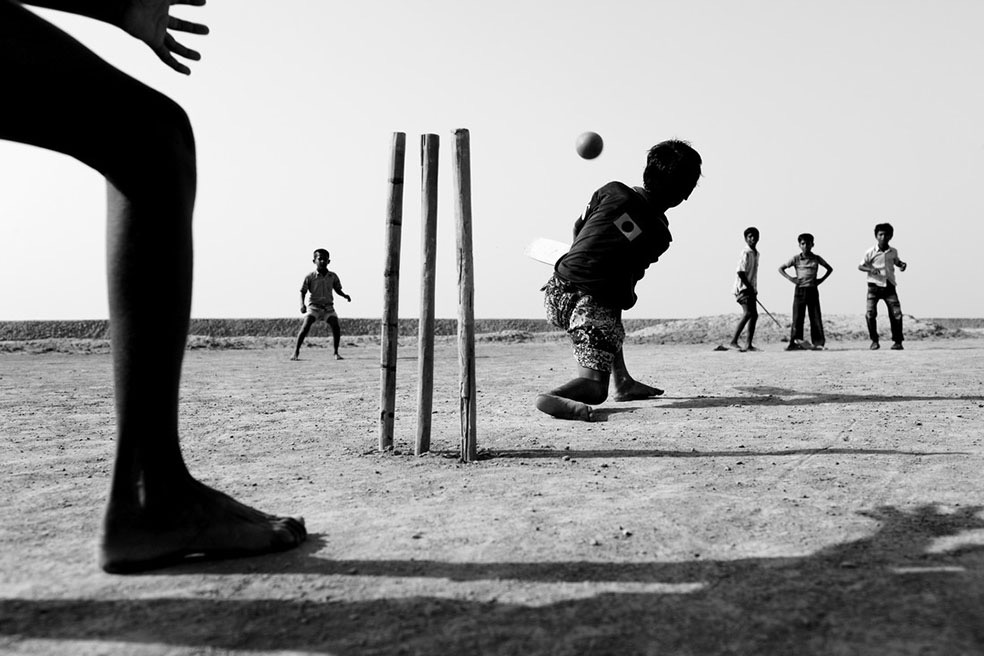
This cascade of events triggered by climate change robbed the coastal community of Bangladesh off their right to live a solvent and peaceful life. Hope is what keeps us alive, but it is not possible to avoid the harsh reality. A lot of these people turned into what we call ‘climate refugees’. Many moved to nearest cities and many of them trespassed the Bangladesh-India border at the Bay of Bengal. A silent climate migration is going on. The fairy tale of the king and his daughter teaches us that everything becomes tasteless without salt, even love. However, for the climate refugees, this is definitely not the case. ‘Salt’ is what made their life simply bitter, salt is the tragedy what they are left with; on their lands and in their tears.
It is never too late to take the proper action. A significant number of national and international policies must be directed towards mitigating the effects of climate change on the lives of the people. Small countries like Bangladesh must be provided with adequate international support so that they can rehabilitate the affected people and protect their coastal resources. Otherwise, an ominous change in the landscape of human civilization will be inevitable.
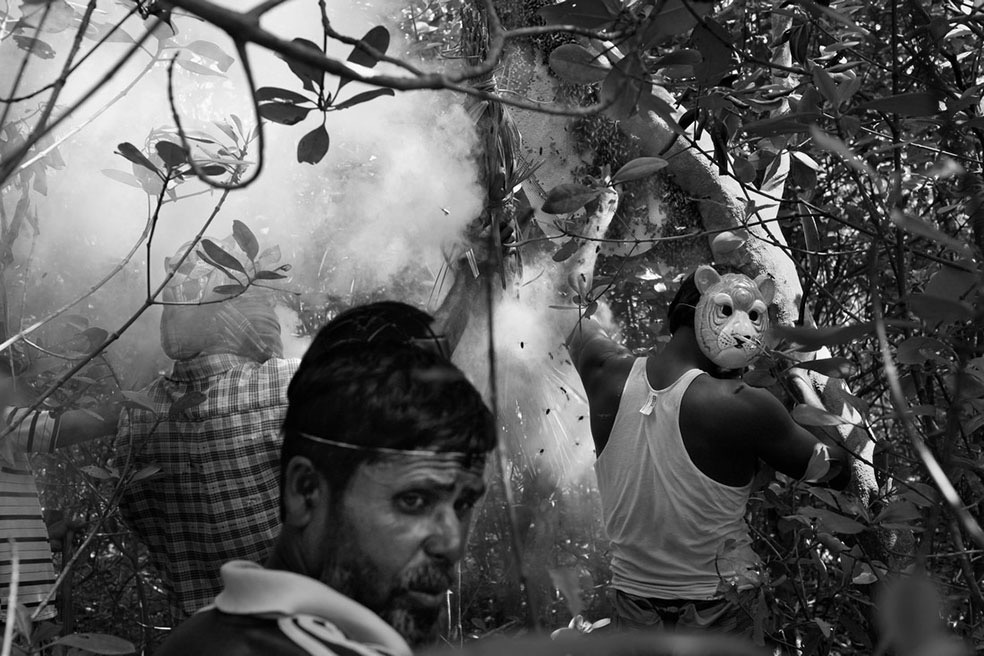
Mohammad Rakibul Hasan is a documentary photographer and visual artist. He is currently pursuing a hybrid Certificate program in Art History at Oxford University as a part-time student and also pursuing a Certificate course in 3D Animation at Dhaka University as a full-time student. Hasan holds a Postgraduate Diploma in Photojournalism from Ateneo de Manila University and also graduated in Film & Video Production from UBS Film School at the University of Sydney. He was nominated for many international awards and won several photographic competitions worldwide. His photographs have been published and exhibited internationally. He is based in Dhaka, Bangladesh and represented by Redux Pictures, USA.
Website: mrhasanphotos.com

